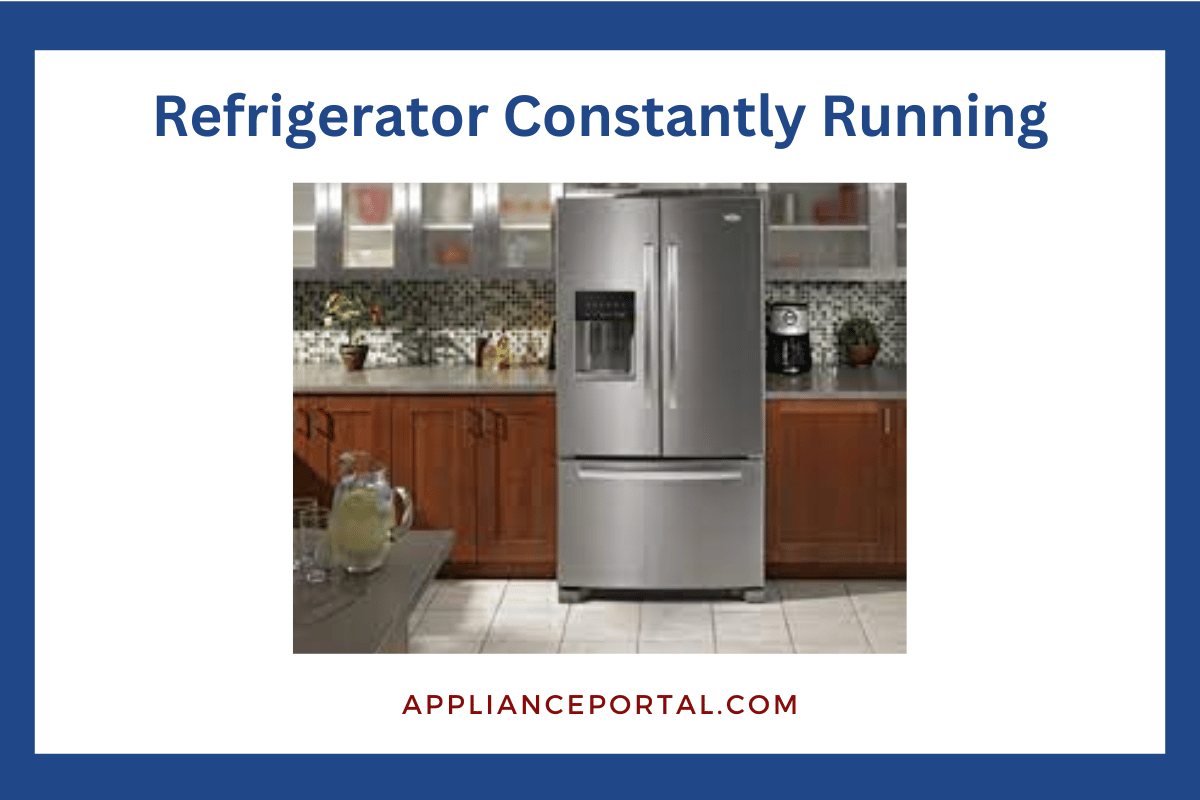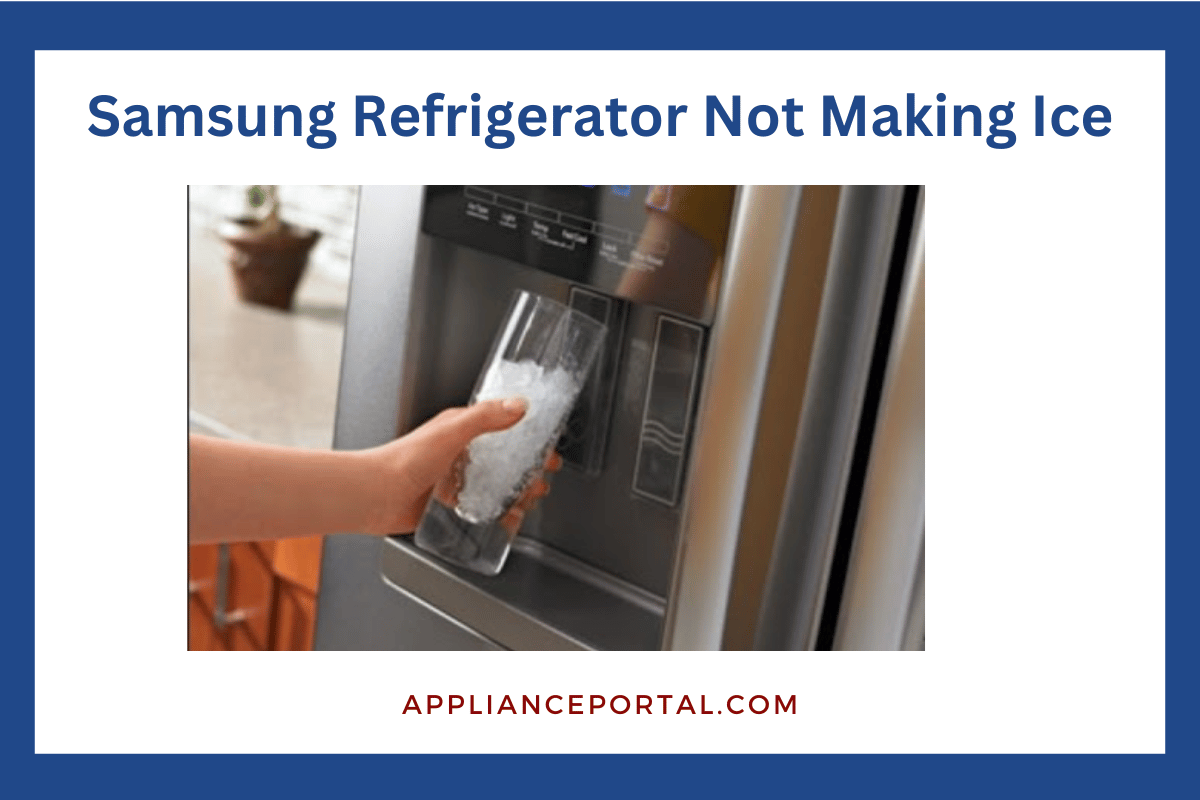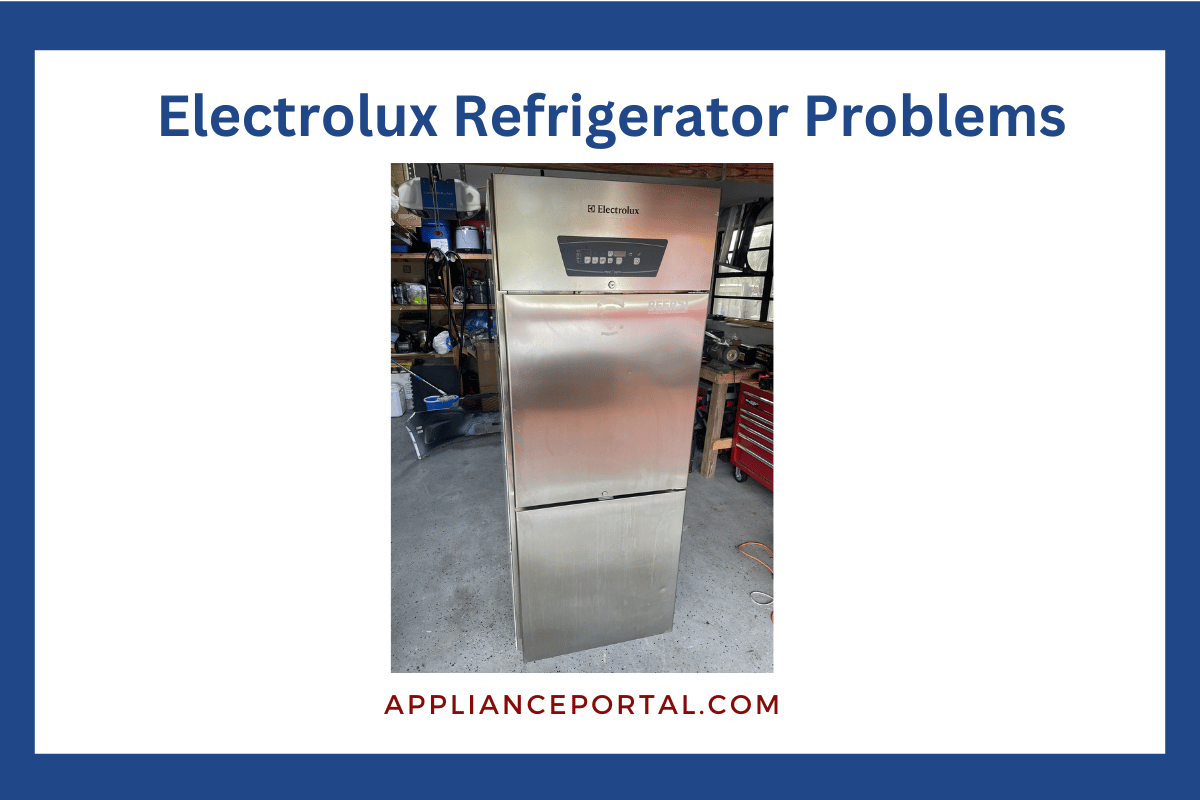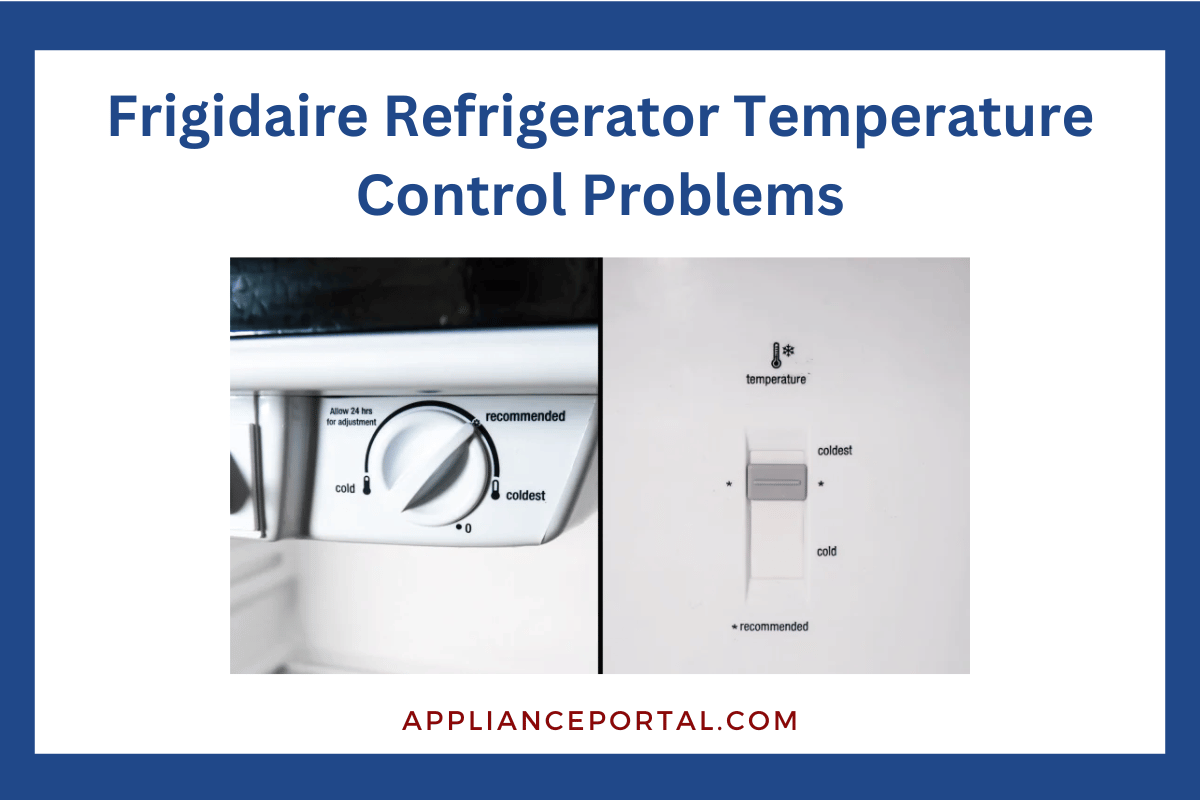If your refrigerator is constantly running, it may indicate a problem with the appliance. Normally, a refrigerator should cycle on and off every 12 to 15 hours during the defrost cycle.
However, if it is running continuously, it could be due to issues such as a malfunctioning condenser fan motor, frozen evaporator, or damaged sealed system. Checking and troubleshooting these components can help identify and fix the problem. Additionally, cleaning the condenser coils, testing the defrost thermostat and heater, inspecting the door gaskets, and adjusting the evaporator fan motor can also help resolve the issue.
By addressing these potential causes, you can ensure that your refrigerator operates efficiently and is not running constantly.
Common Causes Of A Refrigerator Constantly Running
If your refrigerator is constantly running, it could be due to several common causes. These may include issues with the defrost timer, defrost heater, termination thermostat, door gaskets, condenser fan motor, evaporator fan motor, or the sealed system. Regular cycling on and off is normal, but if your refrigerator is running non-stop, it may be time to troubleshoot and address these potential problems.
Refrigerator Constantly Running:
Is your refrigerator constantly running? This can be a cause for concern, as it not only consumes more energy, but it may also indicate an underlying issue. In this section, we will explore the common causes of a refrigerator constantly running and their impact on its running time.
Dirty Condenser Coils:
- Dirty condenser coils can cause your refrigerator to run longer than normal.
- When the coils are covered in dust and debris, they cannot release heat efficiently.
- This can lead to the compressor working harder and the refrigerator running more frequently.
Malfunctioning Evaporator Fan Motor:
- The evaporator fan motor is responsible for circulating the cold air inside the refrigerator.
- If the motor is not functioning properly, it may not be able to distribute the cold air evenly.
- As a result, the refrigerator may run constantly in an attempt to maintain the desired temperature.
Faulty Door Gaskets:
- Door gaskets are the rubber seals that create an airtight closure when the refrigerator door is closed.
- If the gaskets become worn or damaged, they may not seal properly.
- This can cause cold air to escape, leading to temperature fluctuations and increased running time.
Malfunctioning Condenser Fan Motor:
- The condenser fan motor is responsible for cooling the condenser coils.
- If the motor is not working correctly, the coils may not be cooled adequately.
- As a result, the compressor may need to run longer to compensate for the lack of cooling.
Low Refrigerant:
- Low refrigerant levels can put a strain on the refrigerator’s cooling system.
- When there is insufficient refrigerant, the compressor has to work harder to cool the interior.
- This can cause the refrigerator to run continuously as it tries to reach the set temperature.
In this section, we have discussed the common causes of a refrigerator constantly running. Dirty condenser coils, malfunctioning evaporator fan motor, faulty door gaskets, malfunctioning condenser fan motor, and low refrigerant levels can all contribute to a refrigerator running longer than necessary.
If you notice that your refrigerator is constantly running, it is important to address the underlying issue to avoid energy wastage and potential damage to your appliance.
How To Determine If Your Fridge Is Running Efficiently
Is your refrigerator constantly running? Learn how to determine if your fridge is running efficiently with these simple steps. Avoid overused phrases and start with brief, informative sentences to ensure an SEO-friendly and human-like description.
Is your refrigerator constantly running? Not only can it be noisy and disruptive, but it can also indicate potential problems with the appliance’s performance and energy efficiency. Here are some tips to assess whether your fridge is running efficiently:
- Check the Condenser Coils: Dirty or clogged condenser coils can cause your refrigerator to work harder and run longer. Regularly clean the coils to improve its efficiency.
- Inspect the Door Gaskets: Damaged or worn-out door gaskets can result in air leakage, making your fridge work harder to maintain the desired temperature. Check the gaskets for any cracks or gaps and replace if necessary.
- Test the Defrost System: If the defrost system malfunctions, ice may build up on the evaporator coils and hinder the cooling process. Verify that the defrost timer, defrost heater, and defrost termination thermostat are working properly.
- Verify the Temperature Settings: Ensure that the temperature settings are appropriate for your refrigerator. Setting the temperature too low can cause the fridge to run constantly.
- Monitor the Sealed System: A damaged sealed system, including the compressor, evaporator, and condenser, can lead to inefficiency and constant running. If you suspect a problem, it’s best to consult a professional technician.
- Assess the Evaporator Fan Motor: The evaporator fan circulates cool air throughout the refrigerator, and if it’s not functioning correctly, your fridge may struggle to maintain a consistent temperature. Test the fan motor for proper operation.
- Evaluate the Condenser Fan Motor: The condenser fan helps dissipate heat from the condenser coils and promotes efficient cooling. If it’s faulty, it can cause the fridge to run longer. Check the fan motor for any issues.
- Consider Energy Efficiency: Energy-efficient refrigerators can save you money on utility bills and reduce environmental impact. Look for ENERGY STAR certified appliances, which meet stringent energy efficiency guidelines set by the U.S. Environmental Protection Agency.
By assessing these factors, you can determine if your refrigerator is running efficiently or if it requires professional attention to address any underlying issues. Regular maintenance and promptly addressing problems can help prolong the lifespan of your fridge and optimize its performance.
Troubleshooting Tips For A Quiet Fridge
Does your refrigerator constantly run? Troubleshoot the problem with these tips: jump-start the defrost timer, check the defrost heater tube, test the defrost termination thermostat, inspect the door gaskets, check the condenser fan motor, and adjust the evaporator fan motor.
Is your refrigerator constantly running and making a racket? A noisy fridge can be not only irritating but also a sign of an underlying issue. Don’t worry, we’ve got you covered. In this section, we will discuss some troubleshooting tips to help you silence your fridge and restore peace to your kitchen.
Talk About The Importance Of Regular Maintenance And Cleaning:
Maintaining and cleaning your refrigerator regularly is crucial for its optimal performance and longevity. Neglecting this aspect can lead to various problems, including a constantly running fridge. Here are a few reasons why regular maintenance is essential:
- Accumulated dirt and debris on the condenser coils can hinder heat dissipation, causing the compressor to work harder and run continuously.
- A dirty evaporator fan motor can become noisy and inefficient, leading to excessive running time.
- A malfunctioning condenser fan motor can disrupt the cooling process, resulting in longer-running cycles.
Provide Step-By-Step Instructions On How To Clean The Condenser Coils:
Cleaning the condenser coils is a straightforward task that can make a significant difference in the operation of your fridge. Follow these step-by-step instructions to clean the condenser coils effectively:
- Unplug the refrigerator from the power source to ensure safety.
- Locate the condenser coils, usually located at the back of the refrigerator or beneath it.
- Gently brush off the dust and debris from the coils using a soft-bristle brush or a vacuum cleaner with a brush attachment.
- If the coils are heavily soiled, use a coil cleaning brush and a coil cleaning solution to remove stubborn dirt.
- Once the coils are clean, plug the refrigerator back in and monitor its operation for any improvements in noise levels.
Explain How To Test The Defrost Thermostat:
The defrost thermostat plays a crucial role in preventing ice buildup on the evaporator coils. If this component malfunctions, it can cause the refrigerator to run continuously. Here’s how you can test the defrost thermostat:
- Locate the defrost thermostat, typically found behind the back panel of the freezer compartment.
- Disconnect the power supply to the refrigerator.
- Access the defrost thermostat and disconnect the wires attached to it.
- Use a multimeter set to the continuity or resistance mode.
- Place one probe on each terminal of the defrost thermostat and check the reading on the multimeter.
- If the multimeter shows no continuity or an infinite resistance reading, it indicates a faulty defrost thermostat that needs replacement.
Discuss The Role Of The Evaporator Fan Motor:
The evaporator fan motor circulates cold air throughout the refrigerator. If this motor is faulty or dirty, it can lead to longer-running cycles and excessive noise. Take note of the following points about the evaporator fan motor:
- A dirty fan motor can accumulate debris, leading to imbalance and increased noise.
- A faulty motor can cause inadequate air circulation, resulting in longer-running cycles.
- Regular cleaning and maintenance of the evaporator fan motor can help prevent these issues.
Highlight The Impact Of A Malfunctioning Condenser Fan Motor:
The condenser fan motor is responsible for pulling air across the condenser coils, removing heat from the refrigerator. If this motor malfunctions, it can cause the compressor to run continuously and make your fridge work harder. Consider the following points related to the condenser fan motor:
- A malfunctioning fan motor can lead to elevated temperatures in the refrigerator, as heat dissipation is hampered.
- Unusual noises or lack of airflow near the condenser unit may indicate a problem with the fan motor.
- Prompt replacement or repair of the condenser fan motor is necessary to avoid further issues.
Provide Guidance On Replacing The Door Gasket:
A worn-out or damaged door gasket can result in air leakage, causing the refrigerator to run more frequently. Here’s how you can replace the door gasket:
- Ensure the refrigerator is unplugged for safety.
- Remove the existing door gasket by gently pulling it off the edge of the door.
- Clean any residue or adhesive left behind on the door surface.
- Take the new door gasket and align it with the door edge.
- Press firmly along the edge to secure the gasket in place.
- Plug in the refrigerator and check if the door closes properly and creates a tight seal.
By following these troubleshooting tips, you can effectively address the constant running of your refrigerator and enjoy a quieter kitchen environment. Remember, regular maintenance and prompt repairs are key to keeping your fridge running smoothly and efficiently.
Diy Fixes For A Refrigerator That Runs Too Long
If your refrigerator is constantly running, there are several DIY fixes you can try. Check the defrost timer, inspect the door gaskets, and test the condenser fan motor to see if these components need cleaning or replacement.
Is your refrigerator constantly running? It can be frustrating and costly, but before you call a technician, there are some simple DIY fixes you can try. Below, we’ve listed some common culprits and solutions for a refrigerator that runs too long.
Give these fixes a try before seeking professional help.
Jump-Start The Defrost Timer:
- Locate the defrost timer in your refrigerator.
- Use a screwdriver to manually advance the timer to the defrost cycle.
- If the refrigerator starts cooling properly after this, it means the defrost timer was the issue.
Check The Defrost Heater Tube:
- Unplug the refrigerator and locate the defrost heater tube.
- Use a multimeter to check for continuity in the heater tube.
- If there is no continuity, the defrost heater tube may be faulty and need to be replaced.
Test The Defrost Termination Thermostat:
- Locate the defrost termination thermostat in your refrigerator.
- Use a multimeter to check for continuity in the thermostat.
- If there is no continuity, the thermostat may be defective and need to be replaced.
Inspect The Door Gaskets:
- Check the door gaskets for any signs of wear or damage.
- Clean the gaskets with warm soapy water and ensure they are properly sealing the refrigerator.
- If the gaskets are damaged or not sealing properly, they may need to be replaced.
Check The Condenser Fan Motor:
- Locate the condenser fan motor in your refrigerator.
- Ensure that the fan is running properly and not blocked by any debris.
- If the fan is not running or obstructed, it may need to be cleaned or replaced.
Adjust The Evaporator Fan Motor:
- Locate the evaporator fan motor in your refrigerator.
- Ensure that the fan is running smoothly and not making any unusual noises.
- If the fan is not functioning properly, it may need to be adjusted or replaced.
Find Out If The Sealed System Is Damaged:
- Check for any signs of damage or leaks in the sealed system, including the compressor, evaporator, and condenser.
- If there are any visible issues with the sealed system, it is recommended to call a professional technician for repair or replacement.
By following these DIY fixes, you may be able to resolve the issue of a refrigerator that runs too long. However, if the problem persists or you are unsure about performing any of these tasks, it is always best to consult a professional technician to avoid further damage.
When To Seek Professional Help
If your refrigerator is constantly running, it may be time to seek professional help. Avoid potential damage to the appliance by calling an expert who can diagnose and fix the issue quickly and efficiently.
:
If troubleshooting tips prove ineffective in addressing your refrigerator’s constant running issue, it may be time to call in a professional technician. Here are some situations when professional help is necessary:
- If you are unsure about performing complex repairs or handling electrical components.
- When the refrigerator continues to run excessively even after attempting basic troubleshooting steps.
- If there are unusual noises or vibrations coming from the refrigerator.
- When there is a persistent cooling issue, such as the refrigerator not reaching the desired temperature or freezing food despite adjustments.
- If the unit displays error codes or malfunctions that require specialized knowledge and tools.
Remember, attempting advanced repairs without proper expertise can lead to further damage or safety hazards. It’s always best to rely on the skills and experience of a trained professional technician for complex refrigerator issues.
Highlight The Importance Of Contacting A Professional Technician:
Seeking professional help for your constantly running refrigerator is crucial for several reasons:
- Professional technicians possess in-depth knowledge and experience in repairing refrigeration systems, ensuring accurate diagnosis and resolution of the issue.
- They have access to specialized tools and equipment required for repairing and troubleshooting complex refrigerator problems.
- Professional technicians can provide warranties for their work, giving you peace of mind that the issue will be resolved effectively and efficiently.
- Regular maintenance and repairs performed by professionals can extend the lifespan of your refrigerator, saving you money in the long run.
- Experienced technicians can offer valuable advice on optimizing your refrigerator’s performance and energy efficiency.
Contacting a professional technician will not only save you time and effort but also ensure the longevity and efficient functioning of your refrigerator. Don’t hesitate to reach out to a trusted appliance repair service when troubleshooting tips fall short.

Credit: www.kitchenaid.com
Frequently Asked Questions For Refrigerator Constantly Running
What Do You Do If Your Refrigerator Keeps Running?
To fix a refrigerator that keeps running, follow these steps: 1. Jump-start the defrost timer. 2. Check the defrost heater tube. 3. Test the defrost termination thermostat. 4. Inspect the door gaskets. 5. Check the condenser fan motor. 6. Adjust the evaporator fan motor.
7. Find out if the sealed system is damaged.
How Often Should A Refrigerator Cycle On And Off?
A refrigerator should cycle on and off approximately every 12 to 15 hours.
Why Is My Ge Refrigerator Running Constantly?
A GE refrigerator running constantly can be caused by several issues: 1. Check the defrost timer and heater tube. 2. Test the defrost termination thermostat. 3. Inspect the door gaskets for damage. 4. Check the condenser fan motor. 5. Adjust the evaporator fan motor.
6. Verify if the sealed system is damaged. Fixing these problems should resolve the constant running issue.
Why Is My Refrigerator Compressor And Fan Running But Not Cooling?
If your refrigerator compressor and fan are running but not cooling, there may be several reasons: 1. Check the condenser coils for dust or debris buildup, and clean them if necessary. 2. Test the defrost thermostat to ensure it is functioning correctly.
3. Inspect and replace the door gaskets if they are worn or damaged. 4. Verify that the condenser fan motor is running properly. 5. Adjust the evaporator fan motor to ensure proper airflow. 6. If none of these solutions work, it is possible that the sealed system or refrigerant may be damaged, and professional repair may be required.
Conclusion
To wrap up, if your refrigerator is constantly running, there are several potential causes to consider. Firstly, check the condenser coils and clean them if necessary, as dirty coils can cause the fridge to work harder. Next, inspect the door gaskets for any signs of damage or wear, as faulty gaskets can lead to air leakage.
It’s also important to test the defrost thermostat and heater tube, as malfunctioning components can prevent proper defrosting and result in excessive running. Additionally, ensure that the condenser and evaporator fan motors are functioning properly, as these help circulate air and cool the fridge.
Finally, if all else fails, it’s advisable to consult a professional to inspect the sealed system for any potential damage or refrigerant leaks. By addressing these issues, you can improve the efficiency of your refrigerator and prevent unnecessary running. Remember to perform regular maintenance to keep your appliance in optimal condition.





Leave a Reply